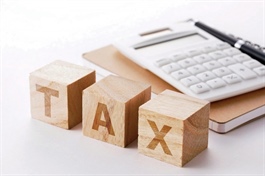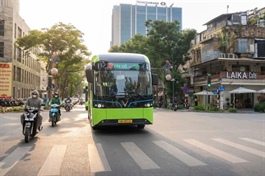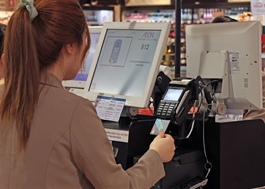Tax authorities lay out tactics for robust and complete policy
Tax authorities lay out tactics for robust and complete policy
The draft Law on Tax Administration may require some adjustments on the tax threshold and implementation process to help the policy become more complete.
The draft Law on Tax Administration, replacing the current version, is being widely consulted on, with many changes. One of the significant changes is management methods for business households, which will have to self-declare and pay taxes, and apply accounting and invoices.
Business households are classified into four groups. The first group with annual revenue less than VND200 million ($8,000) will not be subject to tax. The second group involves annual revenues of $8,000-40,000. The third group has annual revenue of $40,000 to $400,000, and the fourth group covers anything higher.
Under the draft, the tax authority encourages groups 1 and 2 to use e-invoices when buying and selling goods and encourages the use of e-invoices generated from cash registers connected to the tax authority, or invoices with codes. Groups 3 and 4 will have to use e-invoices with codes from the tax authority. If selling directly to consumers, e-invoices must be used from cash registers.
Le Thi Ha, who runs a garment business household in Nghia Do ward of Hanoi said that all business households would have to fill in seven types of accounting books regardless of their revenue.
“Small businesses do not have enough money to hire an accountant to do all these books. So we would prefer a very simple mechanism,” she said.
Nguyen Van Phung, former director of the Large Enterprise Taxation Department under the Ministry of Finance’s (MoF) former General Department of Taxation said, “Households with clear accounting books should follow the business model, declaring input and output. Households with poorer records should declare simply and calculate taxes based on revenue. This way will be more flexible and easy for businesses to implement.”
Mai Son, deputy director of the MoF’s Tax Department, said, “Classifying business households based on scale, location, and industry to simplify the implementation process ensures that business activities are profitable and still contribute to the state budget.”
To support business households, the Tax Department is also considering a rise in the threshold for businesses not subject to VAT and personal income tax (PIT) of $8,000-16,000. That means business households with annual revenue less than $16,000 will not have to pay tax.
Agreeing with this proposal, Nguyen Thi Cuc, chair of the Vietnam Consultancy Tax Association, suggested a raise of the threshold to $20,000 for paying tax. With PIT, the exemption for taxpayers is $5,300 per year, with a family exemption for dependents at around $2,100.
“While this exemption for PIT is being claimed so much and the MoF agreed that it is outdated, not keeping up with reality, and is preparing to amend it, the threshold at $8,000 for business households’ tax exemption is unreasonable,” Cuc emphasised. “Because this is revenue, not profit, meaning that even if the business is not profitable, but the revenue exceeds the above threshold, tax must still be paid. That will be a burden for them.”
Meanwhile, the Vietnam Academy of Social Sciences (VASS) commented that changing the tax management policy for micro-enterprises, including business households and individual businesses, needs a suitable implementation roadmap.
In the initial implementation phase, overload may occur when millions of business households will connect the system. So it is necessary to upgrade technology infrastructure and train technical support staff; improve the legal framework; provide simple accounting software and free e-invoices for household businesses; and organise training courses on bookkeeping and tax declaration skills, the VASS said.
In the next phases of implementation, household businesses may still need temporary tax incentives, supporting for accounting costs and access to preferential micro-credit. Financial support to households in disadvantaged areas is needed.
“With a specific roadmap and appropriate support policies, the transition from lump-sum tax to tax declaration not only contributes to the transparency of the tax system but also creates stronger conditions for business households to develop sustainably and integrate into the formal economy,” the VASS added.
The Law on Tax Administration will be submitted to the National Assembly for approval in October.
- 15:00 01/08/2025
























